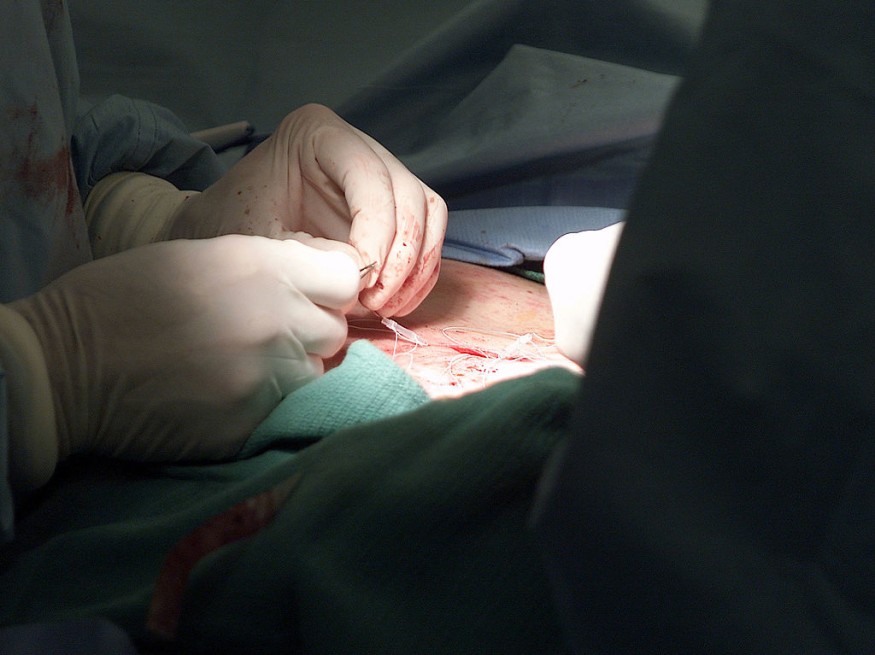
A 29-year-old woman from Australia is facing dire consequences after contracting rare bacteria that made a hole in her abdomen.
Brenna McIntosh is currently recovering from probably the scariest time of her life, or at least it sounds like it. McIntosh had undergone a surgical procedure called abdominoplasty or known as "tummy tuck", a cosmetic abdomen surgery that tightens up abdominal muscles and reduces excess skin around the belly, earlier this year. The cause - a "flesh-eating bacteria" left an open wound on her abdomen, Newsweek reported.
McIntosh had gotten the procedure after she naturally lost 40 kilograms of weight beforehand.
While the surgery was carried out successfully, McIntosh and her friend, Lauren Vanderven, then noticed that something was peculiar. McIntosh had been sweating excessively and her belly button appeared infected. Despite taking a dose of antibiotics, her condition had not improved. When admitted to a hospital, scans revealed that her body was fighting a bacterial infection known as flesh-eating bacteria (necrotizing fasciitis) - a rare but serious infection of the skin and tissues that can be deadly if not treated quickly.
Flesh-eating Disease: What You Need to Know
According to Centers for Disease and Control Prevention (CDC), the "flesh-eating disease" called necrotizing fasciitis is commonly caused by group A streptococcus (GAS) bacteria commonly entering the body through a break in the skin, including cuts and scrapes, burns, insect bites, puncture wounds (including those due to intravenous or IV drug use), and surgical wounds. People can also get it after an injury that does not break the skin.
McIntosh was subsequently placed in a coma and transferred to a different hospital where she is now receiving oxygen therapy to stop the bacteria's spread. She will also undergo a surgery to remove areas of infection.
McIntosh have to spend several more weeks in hospital for a longer recovery period, but her friend Vanderven says she remains positive. "She obviously is processing the news and everything that happened but she is always taking the little wins," Vanderven told 7News.
Also read : Thousands of Swarming Worms Surround a Home in Thailand Following a Deluge of Rain Showers
Prompt Treatment is the Key
Known to be a very serious illness, getting necrotizing fasciitis requires prompt care in a hospital, antibiotics, and surgery.
Since necrotizing fasciitis can spread so rapidly, patients often must get surgery done very quickly. Due to significant time off work and pending bills, Vanderven has started a GoFundMe page to help her friend focus on recovery and "get back to her feet", instead of finances, and had raised $9,000 Australian dollars ($6,578 USD) as of Friday morning, of its $10,000 goal titled Brenna's Recovery.
Antibiotics through a needle into a vein (IV antibiotics) also help stop the infection, according to physicians. However, antibiotics cannot reach all of the infected areas all the time because the bacteria have killed too much tissue and reduced blood flow, CDC said. "When this happens, doctors have to surgically remove the dead tissue," the agency added.
In serious cases, a patient infected with necrotizing fasciitis may end up needing multiple surgeries or blood transfusion.
Related article : Liver-Compromising Virus is Spreading Among Kids in the US
© 2025 NatureWorldNews.com All rights reserved. Do not reproduce without permission.





